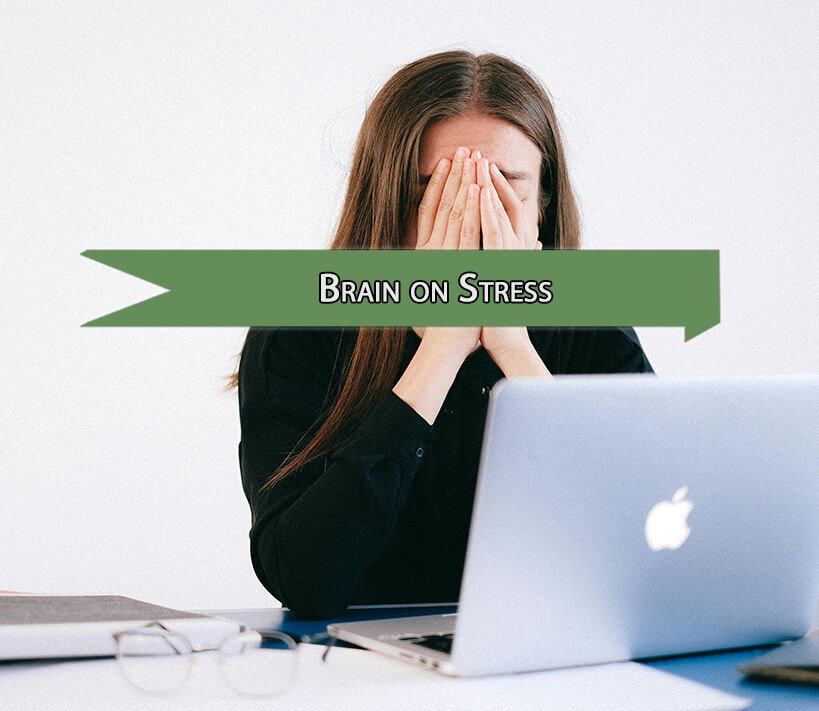Do you know that, according to the American Psychological Association, 75% of adults report experiencing moderate to high levels of stress? Stress has become a ubiquitous part of modern life, whether it is a work deadline, financial worries, or a personal challenge, our minds are constantly under pressure. But have you ever wondered what the brain on stress looks like in action? Understanding how the brain on stress functions can help you manage it more effectively and protect your mental well-being.
In this blog, we will explore the stress response, how chronic stress reprograms the brain, the psychological toll it takes, and how we can protect ourselves from its effects, an approach we refer to as building your psychoaura for emotional resilience.
Stress meaning in urdu
اسٹریس (Stress) ایک ایسی ذہنی اور جسمانی کیفیت ہے جس میں انسان خود کو دباؤ، گھبراہٹ یا بے چینی کا شکار محسوس کرتا ہے، جو عموماً کسی چیلنج یا مشکل صورتحال کے نتیجے میں پیدا ہوتی ہے۔
The Stress Response
When you are in a stressful situation, your brain shifts into a state of survival mode. The amygdala plays a key role here, often referred to as the brain alarm system. It detects the threat and sends an urgent signal to the hypothalamus, triggering the body fight-or-flight response. This leads to the release of stress hormones, such as cortisol and adrenaline.
These hormones prepare you to face danger, your heart rate spikes, your breathing becomes faster, and blood flow is redirected to essential muscles. While this response was crucial for our ancestors to escape predators, today stressors are more psychological than physical, such as work pressure or social conflict. Unfortunately, this ancient survival mechanism backfires when it is activated too frequently or for prolonged periods of time.
How Chronic Stress Rewires Your Brain
Short bursts of stress can be motivating, but chronic stress has serious consequences on your brain structure and function. Elevated cortisol levels over time can impair the hippocampus, a region vital for memory and learning. This is why people under chronic stress often struggle with forgetfulness and concentration. Moreover, stress can shrink the prefrontal cortex, the brain area responsible for decision making, emotional regulation, and impulse control. This shrinkage can make it harder to think, solve problems, or manage emotions effectively. At the same time, the amygdala can become overactive, making you more reactive to negative emotions like fear and anxiety.
The Psychological Toll of Stress
The mental health of chronic stress goes beyond just changes in brain structure. Prolonged stress increases the risk of developing anxiety disorders, depression, and even PTSD. The World Health Organization recognizes stress as a leading cause of disability worldwide and highlights it as a major contributing factor. Stress often triggers unhealthy coping behaviors such as overeating, substance abuse, and social withdrawal. These behaviors, in turn, add to the psychological burden. Without timely intervention, this vicious cycle can severely reduce the quality of life.
How to Protect Your Brain from Stress
Your brain is remarkably plastic, meaning it can change and heal with the right strategies and interventions. Here are some practical ways to help you manage stress.
- Practice mindfulness and meditation daily, as they help calm the amygdala and strengthen the prefrontal cortex, improving emotional regulation.
- Daily exercise lowers cortisol levels and boosts endorphins, which are the brain mood enhancers.
- Sleep is essential for restoring brain function and clearing stress-related toxins.
- Social Connections also play a key role in reducing stress, as strong relationships provide emotional support and help lower stress hormone levels.
Conclusion
Understanding what happens to your brain under stress empowers you to take control of your mental well-being. While stress is an inevitable part of life, chronic stress can have lasting effects on your brain structure, emotional balance, and overall health. The good news is that with consistent, healthy practices such as mindfulness, exercise, proper sleep, and supportive relationships, you can mitigate some of the adverse effects and build resilience. Your brain is adaptable, and with care, you can protect it from the pressures of modern life and thrive even in the face of challenges.




